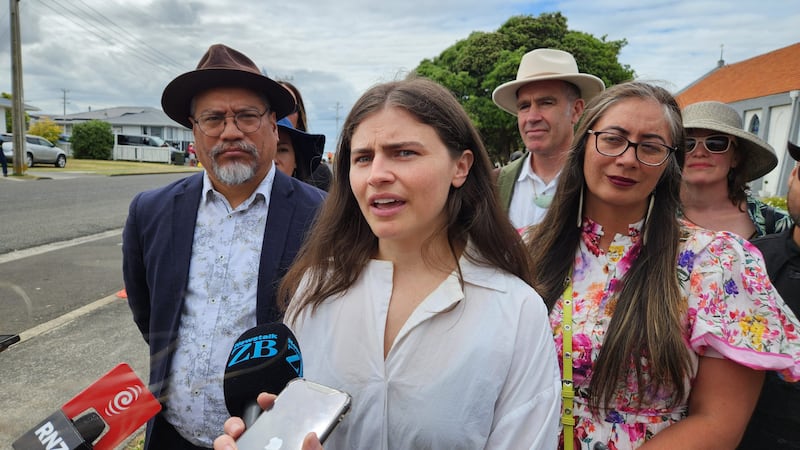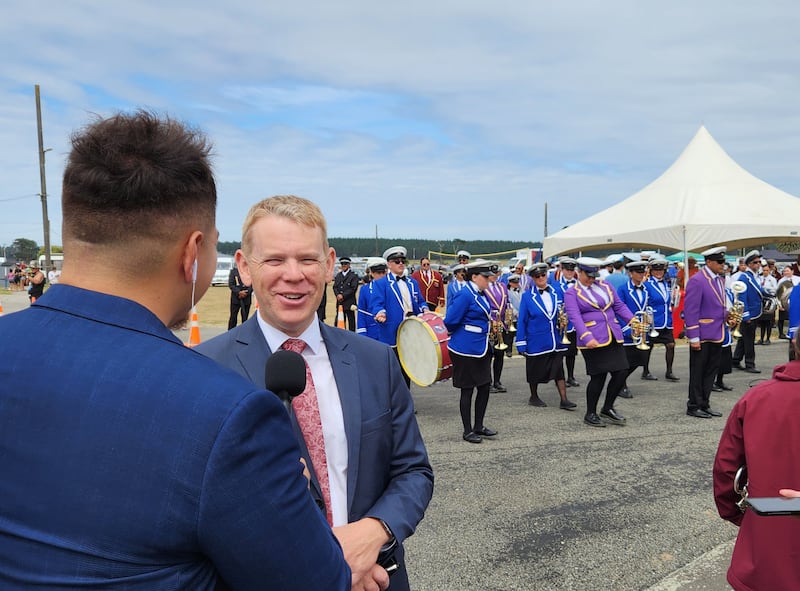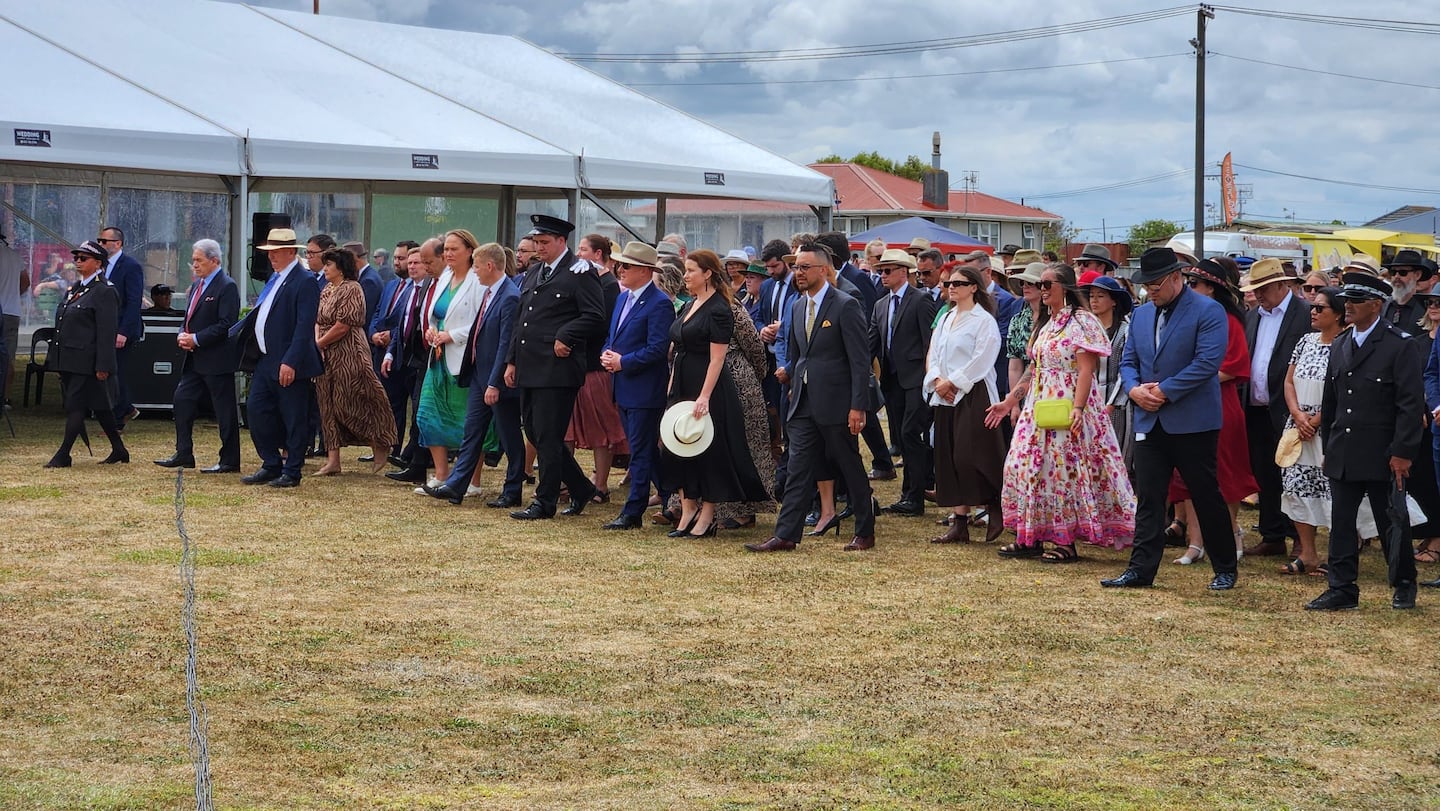Politicians back from their summer break at Rātana on Friday had mixed views on the likely impact of more than 40 upcoming polls by councils around the country to decide on Māori wards.
The councils are required to run binding local referenda alongside this year’s local body elections on 11 October. The local polls will rule on whether councils can keep their Māori wards and constituencies.
As politicians descended on Rātana for the customary start to their political year, Minister for Māori Crown Relations: Te Arawhiti, Tama Potaka, said he expected “excitement and passion” to ensure that the polls enabled Māori seats.
But Green Party co-leader Chloe Swarbrick warned they could give rise to uninformed vitriol and Labour leader Chris Hipkins said the referenda were unfair and part of a divisive agenda.
Regional Development Minister Shane Jones – whose son Penetaui Kleskovic is a Māori Ward councillor on the Far North District Council – said he did not support increasing Māori representation in local government.
A law change by the coalition Government soon after it came into power in 2023 required councils that brought in Māori wards without holding a local referendum to either reverse the decision or poll residents at the 2025 local body elections.
Of the 45 councils impacted by the change, only Kaipara District Council and Upper Hutt City Council voted to ditch their existing or planned Māori wards.
Potaka said he supported increasing the number of Māori in local government.
“I’ve been a huge fan of Māori putting up our hands to be representatives with central and local government and I think there’s been some really significant gains made by having more Māori in local government,” Potaka said.

“It will be taken to referendum in some places and I’m sure there’ll be a lot of excitement and passion brought to bear by many people – tangata Māori, tangata tiriti, tangata moana – to ensure that those referenda enable Māori seats.
“It’s up to the constituents to decide that but I’ve seen some real progress created by more Māori ward councillors being in place.”
Potaka said Māori would face some significant challenges in the year ahead.
“Nine percent unemployment, 40% of all jobseekers are Māori, there are some serious gaps in the median income that whānau Māori have and some significant challenges with home ownership.
“All those things have been confronting Māori for years. We have to really get the economy going and deal to some of those basic economic cost-of-living needs that our people have. That’s what I’m here to fight for.
“My fight is for equal citizenship and equality of opportunity for our people and that is very consistent with the National Party’s constitution and what we believe in.”
Swarbrick said the Greens were concerned about the potential for “some pretty uninformed and nasty vitriol” leading up to the polling.
“The government made a choice to take this to referendum as opposed to just allowing the localism that they said they believed in at election 2023.
“But I think we will see, as we have seen with the likes of the hīkoi and the mobilising and the kōrero that’s happening around the country, that New Zealanders are crystal clear about what we believe in.
“If we see that mobilising and organising around the retention of Māori wards, that’s a great affirmation of who we are.”
Swarbrick said the level of activism seen in 2024 showed the power of the people and was a valuable process.
“That conversation is starting to stimulate an awareness that politics happens regardless of whether people engage with it or not. It’s critically important that everyday people do engage in politics, because otherwise we’re going to get dictated to by the lobbyists.”

Hipkins said it was a disappointing move by the current government to force the spate of referenda. The Labour Party’s position had been consistent for some years that Māori seats should be treated the same as every other seat around the council table.
“If councils want to rearrange their wards, if they want to have different boundaries, different constituencies, if they want to establish a rural ward, they can do all of those things without having to hold a referendum, so why should they have to hold a referendum for the Māori seats?” Hipkins said.
“It’s unfair, it’s discriminatory and we think it’s part of a divisive agenda by the government to create dissent, to create disagreement, and it’s setting the relationship backwards.”
Hipkins said it would be “another tough year” for Māori.
“As long as this government remains in office, it’s going to be tough going for Māori.
“It’s pretty clear that this government sees race as a tool to divide the country and to distract attention from the other things that they’re doing which are taking the country backwards.”
Jones said Māori development had been blighted by too much local government regulation.
“It undermines housing development, it undermines economic growth. Too many of those regulations are no longer fit for purpose.
“We need less local government in Māoridom, not more Māori in local government.
“I’m no fan of increasing Māori representation if it means that we’re stuck with the same regulations that undermine Māori development.”
Jones said his focus as a Māori politician was economic empowerment.
LDR is local body journalism co-funded by RNZ and NZ On Air



